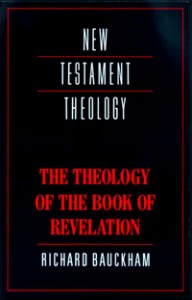Guys. I’ve done it. I’ve solved the puzzle. Finally, after 2,000 years, because of my hard work and intellectual prowess, we can now know exactly what the mark of the beast is. Every towering genius of the past quakes before me. This mystery, which has been studied and debated by scholars of Scripture for centuries, will now finally be revealed in this blog post. By me. A genius. No. Even better: A galaxy-brained genius.
Ok, so maybe I don’t know what the mark of the beast actually is. The book of Revelation is super confusing, and the further we get from the time of its writing, the more difficult it is for us to discern its mysteries. It’s not written in a straightforward way. It’s timeline is most likely non-linear. The images, exploding off the page as they do, are so vivid and strange that they mask the reality to which they point. Is it past? Is it present? Is it future? The answer is an emphatic, “Yes!” It is all of these. It is history and prophecy, of both the physical and spiritual realms. It is current events — the news. It was the news. It is the news. It will be the news. Get it? Hardly. But I do have some thoughts.
The book of Revelation was the news, is the news, and will be the news.
Lots of folks think we’re living in the days prophesied in Revelation — the end times. People have always thought this, though, and I have a feeling that they’ve always been a little bit wrong but a whole lot right. We’ve been living in the last days ever since Jesus ascended back into the Father’s presence. His death, resurrection, and ascension kicked off an entirely new age in world history. We’re in the last days, the last phase of this world before Jesus makes everything new. The end is near! We’re just not quite to the last hour yet.



